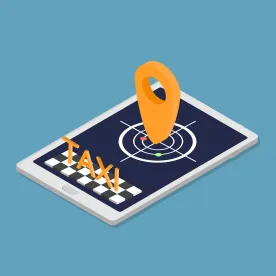In a significant decision on the status of so-called "gig economy" workers, a California federal judge recently ruled that a former GrubHub Inc. delivery driver was an independent contractor, not an employee.
In Lawson v. GrubHub Inc. et al., U.S. Magistrate Judge Jacqueline Scott Corley concluded that GrubHub Inc. did not exercise sufficient control over drivers to convert them into employees. The court noted that GrubHub Inc. did not dictate the manner in which Lawson made deliveries and did not require a uniform, specific hours, signage, or training.
This ruling may have far-reaching implications for other gig economy companies if other courts adopt a similar approach. Uber, Lyft, and other companies have been embroiled in a series of cases brought under state and federal law across the country, but final court determinations are lacking. The advent of the gig economy—in which workers perform flexible and episodic jobs—has created legal uncertainty as to how to classify workers and what protections, if any, they should be afforded.





 />i
/>i

